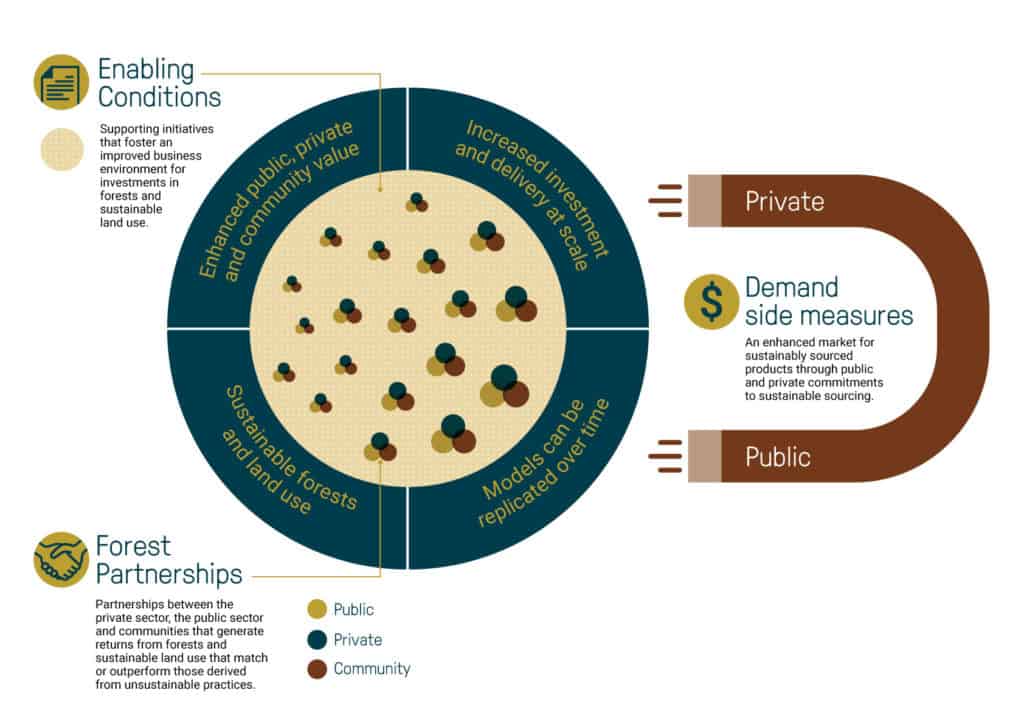
Supporting Forest Partnerships
The programme’s main focus is supporting the development of Forest Partnerships. These are partnerships between private sector companies, public sector actors and people—the communities that depend on forests for their livelihoods—that catalyse investment in forests and sustainable land use.
A partnership could, for example, be a large-scale deal between government, smallholders and private sector companies that reforests degraded land to mixed forest and generates benefits for all partners. Or it could aim to transform a whole commodity sector through the widespread implementation of commercially viable but sustainable practices.
Ideas for these partnerships exist, but they often face challenges to commercial scale up. Partnerships for Forests provides a combination of grants and technical assistance to help selected partnerships move towards commercial scale up—from an idea or concept through to full proposal, business plan, pilot and finally commercial scale-up.
Support could focus on improving a partnership’s business case or financial model, supporting organisational design or advising on commercial scale-up.
Partnerships for Forests will support partnerships at different levels of maturity, from those that are only ideas through to projects that have already been piloted and are looking to scale up. However all partnerships should have the potential to deliver impact at scale, either through their own operations or replication elsewhere.
Enabling conditions
Partnerships for Forests work on enabling conditions will focus on unblocking critical barriers that hinder sustainable investments, particularly those affecting Forest Partnerships identified for support. This work could include supporting and sharing research on investment models and facilitating multi-stakeholder dialogue to identify options or strategies to unblock barriers.
Demand-side measures
Demand-side measures will support the implementation of existing corporate supply chain commitments, existing public procurement policies and developing new responsible sourcing guidelines and implementation tools.
